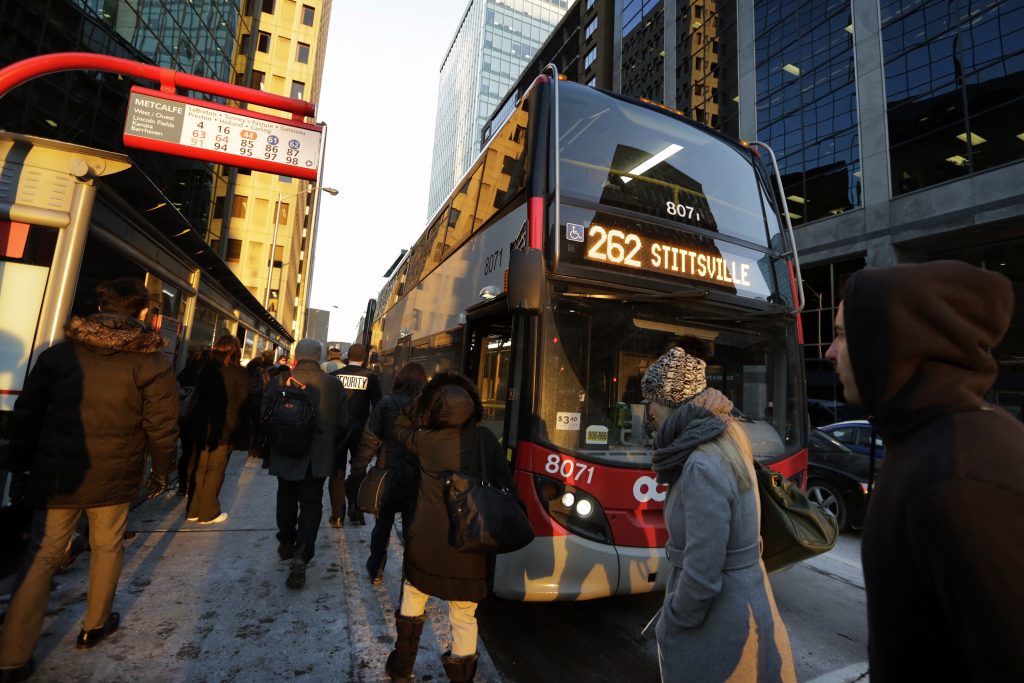City announces EquireFare discount-transit ticket
By Vera He
The City of Ottawa has announced plans for a deeply discounted single-fare transit ticket of $1.75 for the capital’s low-income residents. But EquiFare users will likely face price hikes every year after the program’s launch by next June, a transit advocate warns.
The EquiFare program, which offers half-price transit tickets to those who qualify, was included in the City of Ottawa’s 2018 draft transit budget released Nov. 8.
But it appears that city is “dead set” on increasing transit fares — including the EquiFare — every year from now on, warned Trevor Haché, transit advocate with the Healthy Transportation Coalition.
“This means that (EquiFare) riders will pay $1.75 for six or seven months in 2018. Then, it is likely going to increase in January 2019,” Haché predicted.
According to Haché, the city’s 2018 budget indicated that the price of all transit fares, including the monthly $57 EquiPass for low-income riders, will be increased in 2018.
“That is something we need to resist,” said Haché.
One of the reasons that the city introduced EquiFare is to complement the EquiPass program that was made available to riders in April 2017, said Coun. Stephen Blais, chair of the transit commission.
Blais acknowledged that many low-income transit riders may not need a monthly EquiPass, but would use a single-fare ticket on some days.
“It’s been said by many political and religious leaders that a nation’s greatness is measured by how it treats its weakest members,” said Blais, explaining the city’s motivation for creating the lower-priced transit options.
The EquiPass program recorded its highest subscription rate of 2,746 riders in October, but the city estimates that 8,800 people could be eligible for the passes.
“Even though the price of the EquiPass represents a great improvement compared to the cost of the regular pass, it still represents a considerable part of the budget of eligible residents,” noted Somerset Coun. Catherine McKenney said.
A recent HCT report on transit fares indicated that the relatively slow uptake of the EquiPass among potential beneficiaries of the discount is likely going to leave $1.5 million of the city’s 2017 transit budget unspent. That means means “any leftover EquiPass money will be used to address departmental budget deficits” rather than supporting low-income residents of the city, the coalition contended.
The HTC suggested the city should use the unspent money to provide free Presto cards — which currently cost $6 — to low-income people, and reduce the price of the EquiPass to as low as $42 a month.
According to the city’s budget document, the two transit subsidy programs will cost about $3.7 million in 2018.
Since the city is giving itself a June deadline for launching the EquiFare program, the savings on single-ticket transit costs will not be available to low-income residents until then, which is a challenging situation, Haché said.
“While I can appreciate that residents will want it to take effect much sooner, a staged approach is more conducive to our finances,” said Blais.
Haché acknowledged the positive steps taken by the city to help low-income citizens, but he said more could have been done.
“It is never enough when it comes to things related to reducing poverty,” Haché said. “We’d like to see more actions taken much more quickly than what is currently planned.”

